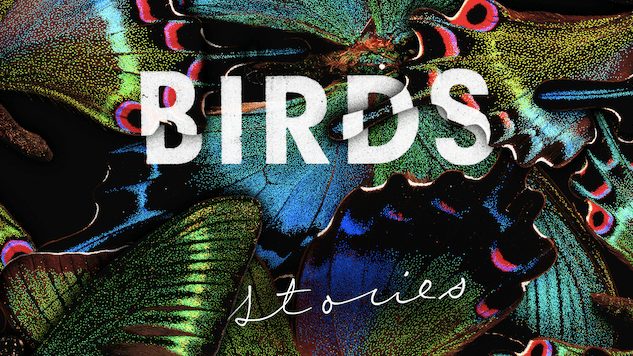Samanta Schweblin’s Mouthful of Birds Solidifies Her Delightful, Unsettling Voice

Argentinian writer Samanta Schweblin has a reputation for writing tales that dance between the real, the hallucinatory and the evocative. And in Mouthful of Birds, her new short story collection translated by Megan McDowell, she once again explores the delicate line between real life and fantasy to devastating effect.
In the titular story, a father is horrified to find his daughter is subsisting on living birds. In “Butterflies,” a couple seeks an unusual means of managing an unexpected pregnancy, which utilizes force of will and a very specific set of steps. “Slowing Down” follows a man who dies after feeling that he’s been “slowing down,” highlighting his widow’s realization that her life might be ending as well. Many of Schweblin’s stories hinge on familial dramas: a man appears on a doorstep on Christmas Eve to upset a household; a depressed family member’s misery seems linked to his own family’s happiness and good fortune; a man seeks out a unique form of massage therapy to grapple with father’s abandonment.
 Each story’s disorienting effect lies in its ability to waver between the concretely real and the hazily unreal. There’s a sense of the paranormal—rather than the magic—at play. Some manage that dance better than others; the opening story “Headlights” is haunting, but the final twist lands like a rock. But when Schweblin carries off the balance, she crafts a twisted reflection of near universal anxieties and experiences; “Toward Happy Civilization” mutates from a bureaucrat’s struggle against a provincial station agent into a chilling abduction mystery into a meditation on the ways in which we fixate on destination.
Each story’s disorienting effect lies in its ability to waver between the concretely real and the hazily unreal. There’s a sense of the paranormal—rather than the magic—at play. Some manage that dance better than others; the opening story “Headlights” is haunting, but the final twist lands like a rock. But when Schweblin carries off the balance, she crafts a twisted reflection of near universal anxieties and experiences; “Toward Happy Civilization” mutates from a bureaucrat’s struggle against a provincial station agent into a chilling abduction mystery into a meditation on the ways in which we fixate on destination.
The collection’s most striking stories are meditations on violence and art. In “The Heavy Suitcase of Benavides,” a man murders his wife and puts her in a suitcase—only for the suitcase to be mistaken for a work of art. While “Heads Against Concrete” introduces a man who has sublimated his lifelong anger into wildly popular paintings depicting heads being smashed against concrete surfaces. In both stories, the “artist” understands and reflects on the darkness that lingers beneath the works of “art,” which is ignored by all others—a tension that is most clear in the case of Benavides, who is horrified by the idea that his murdered wife could be seen as something other than a criminal act of violence. By laying bare the natures of the men creating art, Schweblin reveals the ways in which audiences are willing to overlook such natures in their efforts to celebrate the work. It’s an insightful and subtle examination of the mental gymnastics “separating the art from the artist” so often involves.
The question of what unites these stories isn’t necessarily easy to answer. As a collection, there seems to be more unification in the mood than the content. By shifting between grounded central questions and near-otherworldly details, Schweblin evokes a gauzy sense of peril and disruption. Despite some uneven moments, Mouthful of Birds is a collection that solidifies Schweblin’s place as a unique voice in world literature—a voice that delights as much as it unsettles.
Bridey Heing is a freelance writer based in Washington, DC. More of her work can be found here.